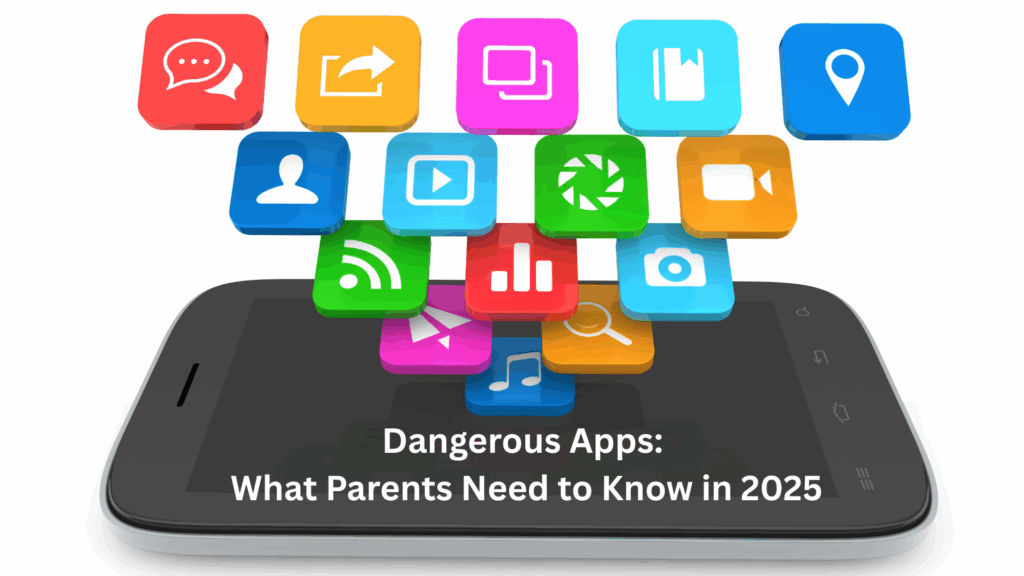A recent warning from the Fort Collins Police Department reminds us that the most dangerous apps on a child’s device often don’t look dangerous at all. Hidden behind harmless icons or friendly branding, these apps can expose children to serious online risks like sextortion, cyberbullying, grooming, and data exploitation.
Some of the apps flagged by law enforcement include:
- Monkey: Random video chats with strangers, with little to no moderation.
- Kik: A messaging app with minimal account verification, making it easy for adults to communicate with minors anonymously.
- Ask FM: A platform for anonymous Q&As, which has been linked to increased cases of cyberbullying.
- Skout: A location-based dating app often used by minors pretending to be older.
While these platforms might appear fun or harmless, they create real vulnerabilities, especially when used without guidance or oversight.
Why This Matters for Parents Today
In 2025, online threats have become more sophisticated. Disguised apps, disappearing messages, and anonymous communication tools make it harder than ever for parents to spot warning signs early. Meanwhile, predators are adapting just as quickly, using platforms designed for teens and young adults to find opportunities to exploit.
Ignoring these risks doesn’t make them disappear. Open conversations, proactive monitoring, and setting digital boundaries are now essential parts of modern parenting.
What Parents Can Do
- Talk regularly with your child about the apps they use and the people they interact with online.
- Set clear rules about device use, app downloads, and online communication.
- Research apps before approving them. Understand their features—and their hidden risks.
- Teach critical thinking: Encourage your child to recognize red flags and report anything that feels uncomfortable or suspicious.
At CyberSafely.ai, we believe education and early intervention are the most powerful tools. Our AI-powered platform helps parents spot signs of risky digital behavior, before issues escalate.
Digital safety isn’t about fear.
It’s about empowerment, giving families the knowledge, tools, and confidence to navigate the online world safely.

